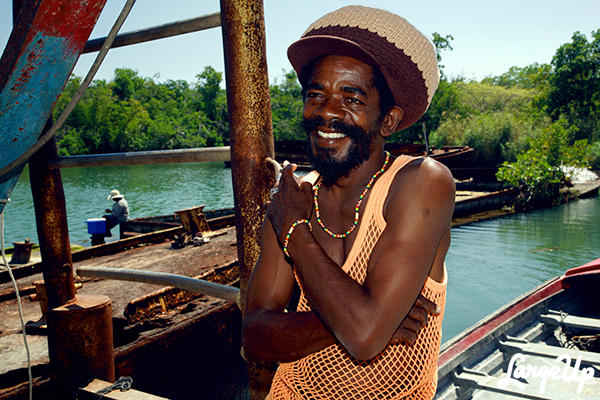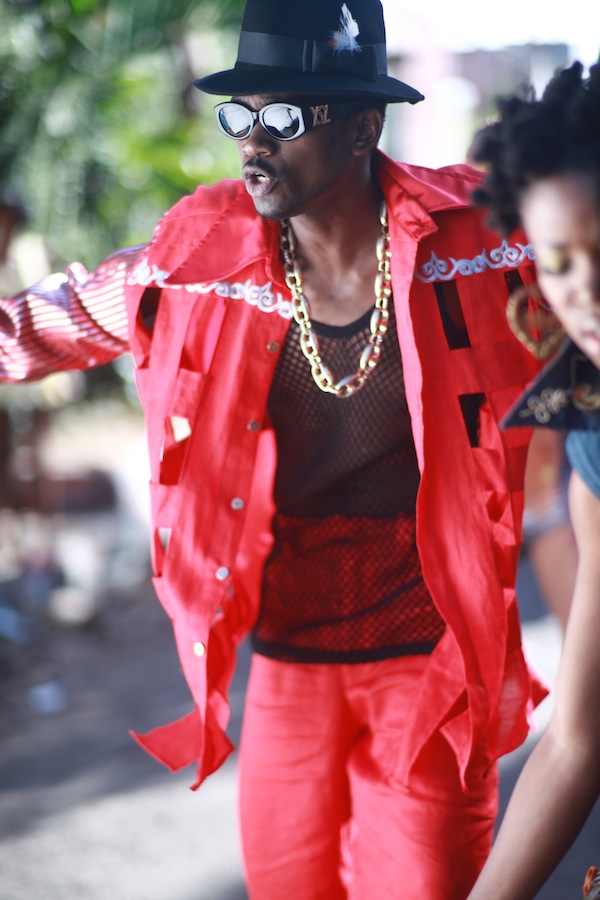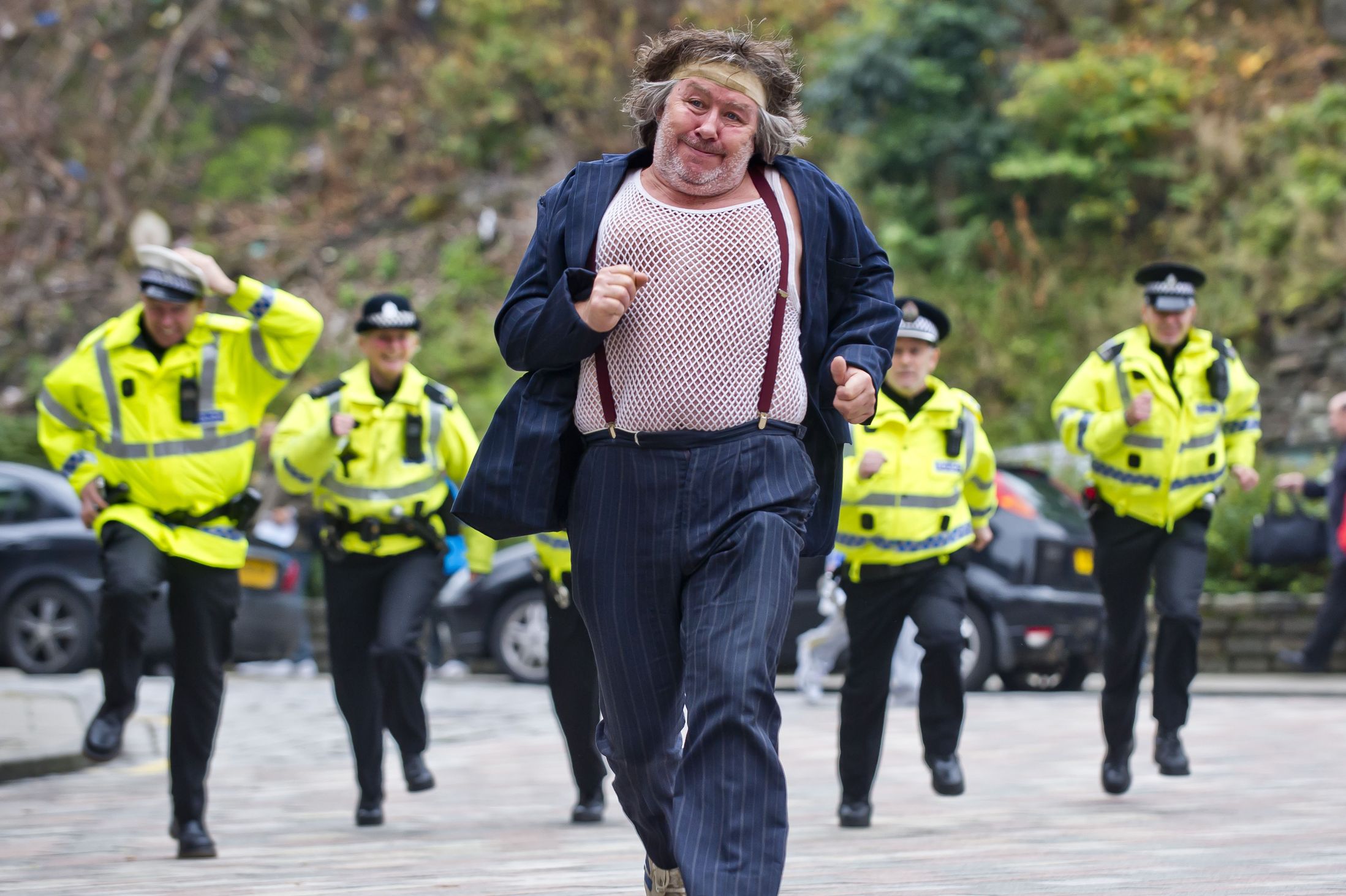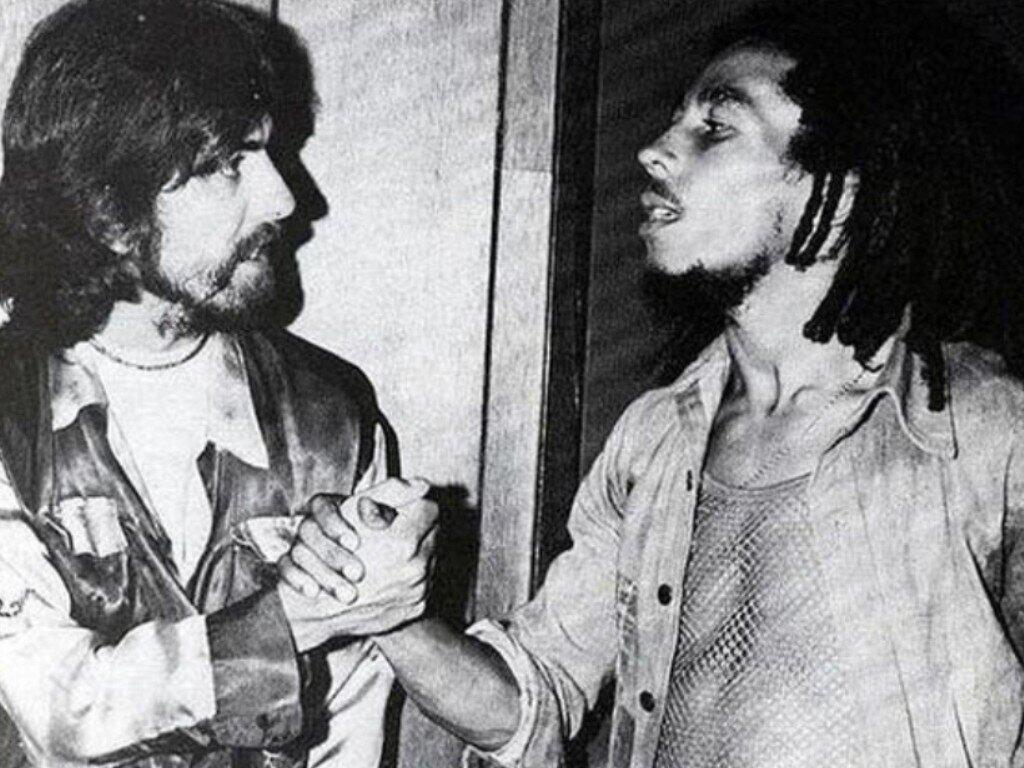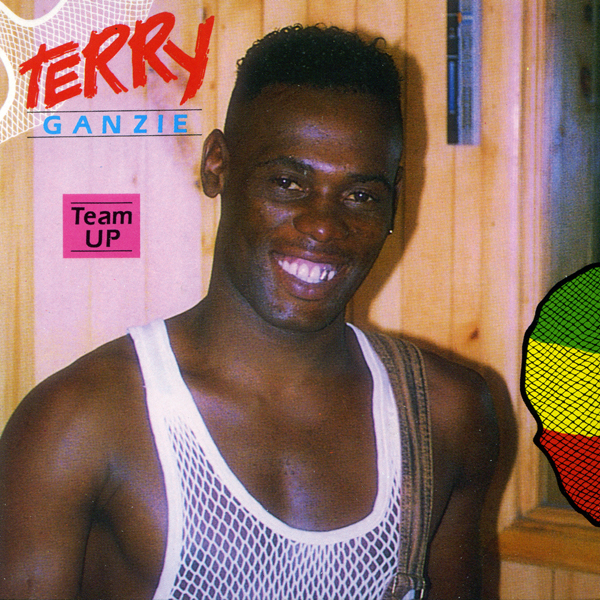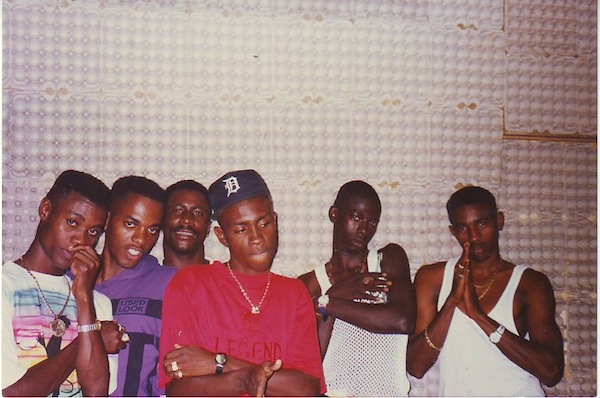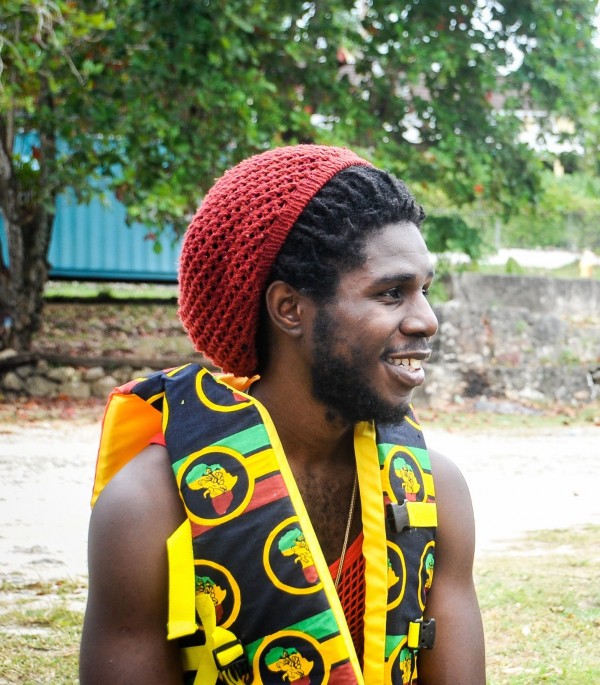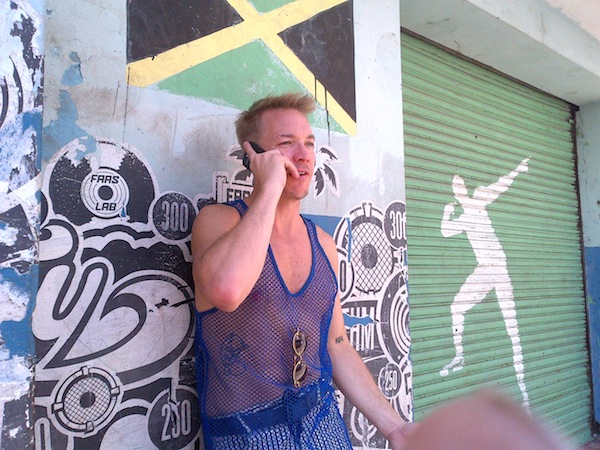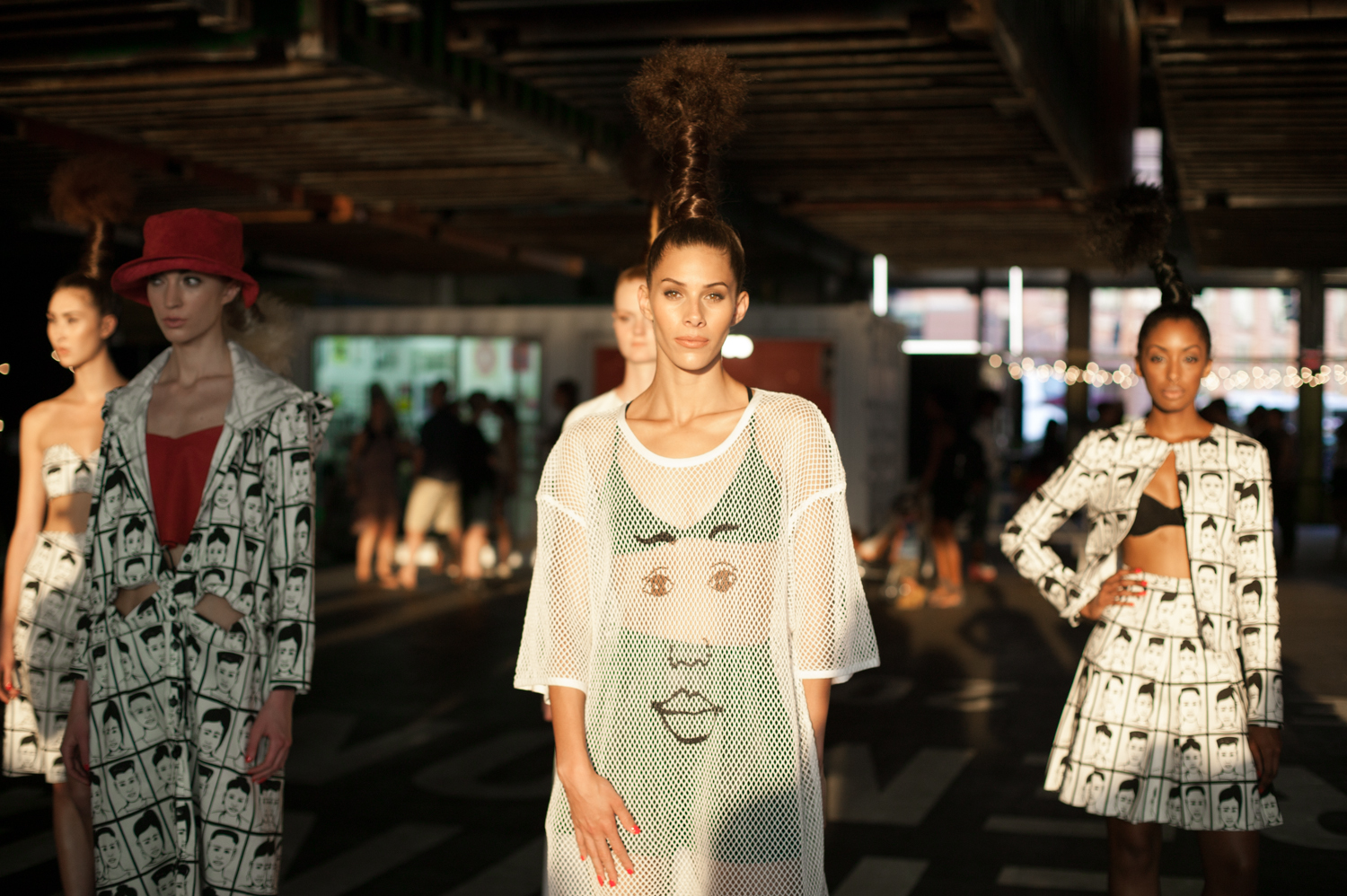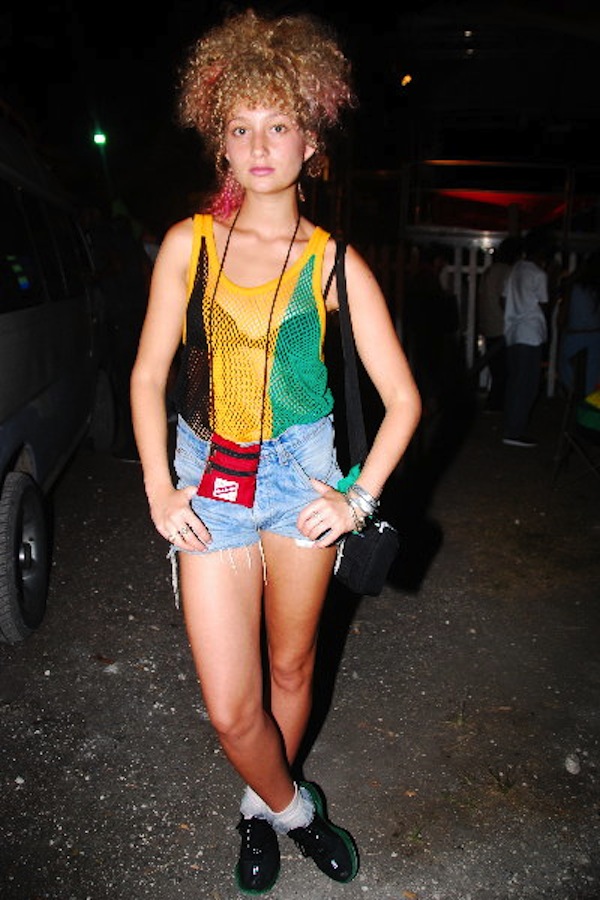Words by Erin Hansen-McKnight, Photo by Martei Korley—
Lately, we’ve been noticing mesh marinas, the netted garment long favored by Jamaican men like singer Cocoa Tea (above), turning up more and more, from retro-styled dancehall videos to the runway. We tapped Kingstonstyle‘s Erin Hansen-McKnight for a comprehensive history of this Caribbean fashion staple, from its roots in Scandinavia to its place today as an iconic rude-boy fashion statement.
One summer night in Montego Bay three years ago, amidst the gregarious chaos of Reggae Sumfest, photographer Marlon Reid asked a long-legged beauty with a floppy mop of blond hair if he could shoot her for our Jamaican streetstyle site, Kingstonstyle. The girl of interest was wearing washed out jean cut-offs, black patent leather sneakers, white socks with a skirt of frills around the ankle and a black, yellow, and green mesh marina. At the time, Reid didn’t realize he was shooting stylist Savannah Baker, who would turn up in Popcaan’s “Everything Nice” video. What caught his eye was her unusual pairing of the coquettish style of Japanese Harajuku with this iconic Jamaican garment staple.
The mesh marina, a tailored muscle tee made from a knitted cotton that resembles fishing net, has an iconic, albeit multi-faceted, place in Jamaican culture. Originating as a Norwegian utilitarian under-garment, the mesh marina has evolved in Jamaica, becoming synonymous with both the classic rude boy style of the ’70s– when it was worn beneath one’s button down shirt– and in the more blatant and colorful manifestations of ‘90s dancehall. The traditional mesh marinas worn by rude boys as far back as the ‘50s came in solid colors, typically white, while decades later the black, yellow and green mesh marina developed on a second wave of popularity, when manufacturers realized their most profitable audience was through Jamaica’s dancehall and reggae culture.

